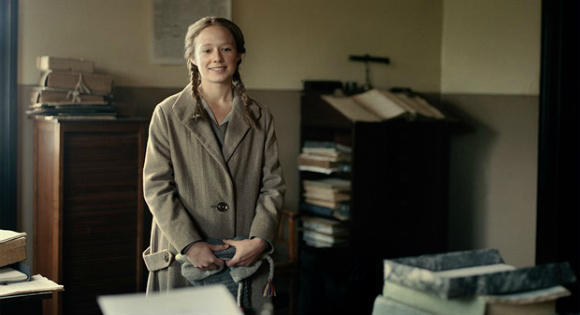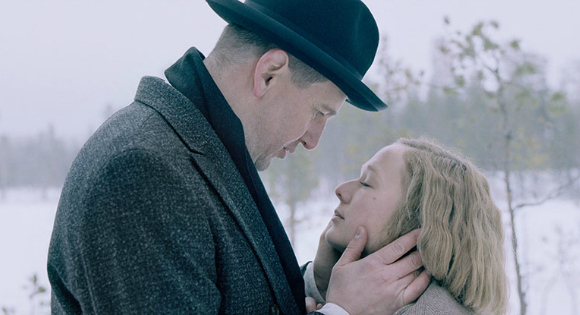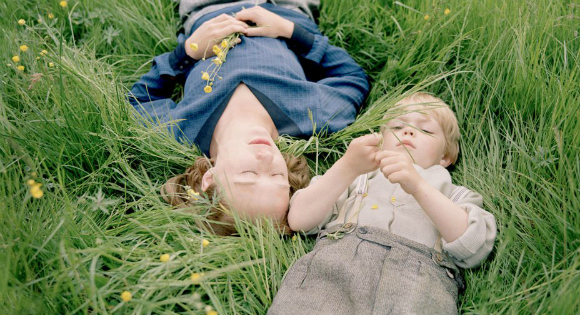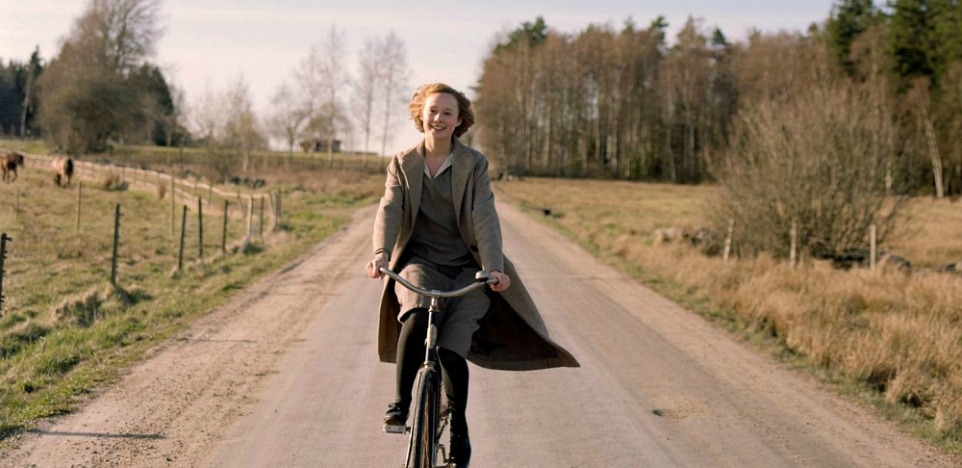This fascinating biopicture centers on the creative and unconventional Swedish children's book writer Astrid Lindgren (1907 - 2002). She wrote Pippi Longstocking which was published in 1945 to great acclaim. Many books followed and eventually the Pippi stories became among the most translated books in children's literature. Young people and also adults from around the world were enchanted by the resourcefulness of this girl who was strong in body, mind, and spirit. Pippi's spunk was expressed in her independent spirit, her love of freedom, and her courage in the face of all types of repression.
A wonderful framing device in the film, orchestrated by director Pernille Fischer Christensen, has the older Lindgren opening letters and birthday greetings from her adoring fans who praise her for giving them a heroine who speaks for them and inspires them to be true to themselves. One asks, "How do you write so well without being a child?" Throughout the film, these short scenes identify the themes that have made Lindgren's books so popular.

As a teenager, Astrid (Alba August) is playful and filled with energy, but she is drained by the oppressive Christianity of her churchwarden father (Magnus Krepper) and judgmental mother (Maria Bonnevie). She works together with them in the fields but with little communication. The one exception is when her father leads her out of the cold and has her warm her hands on the flank of a cow.
Astrid finds a much more open-ended and free atmosphere when she gets a job as an intern working for the town's newspaper editor Blomberg (Henrik Rafaelsen). He believes she is a talented writer and has a bright future ahead of her. An unhappy man, he describes her as a "star" and asks her to "shine a little on me."

But when they have an affair, the fallout is much more damaging for Astrid than for him — especially when she gets pregnant. He is in the process of getting a divorce while caring for his children, and an accusation of adultery will not only complicate the proceedings but may lead to his going to jail. To protect him, Astrid goes to Denmark to have the baby and then leaves the baby in the care of a foster mother, Marie (Trine Dyrholm). Back in Sweden, she rejects Blomberg's marriage proposal and gets a job as a secretary, using her savings to regularly visit her son.
Alba August (the daughter of the Oscar-winning director Billie August) draws out our empathy as she struggles with the patriarchal prejudice of Sweden's legal system resulting in her being separated from her child for his early years. When she can finally bring him to Sweden, she must win his trust and love, connecting with him through nature and storytelling.

The kernels of Astrid Lingrin's stories are evident in her own story, as retold in this film. The children in her books face challenges at every turn, and yet, demonstrating remarkable resilience, they endure and thrive. Leaving the theater, we were ready to write our own birthday greetings to the author, thanking her for promoting an encouraging view of the trials and triumphs of coming-of-age.
